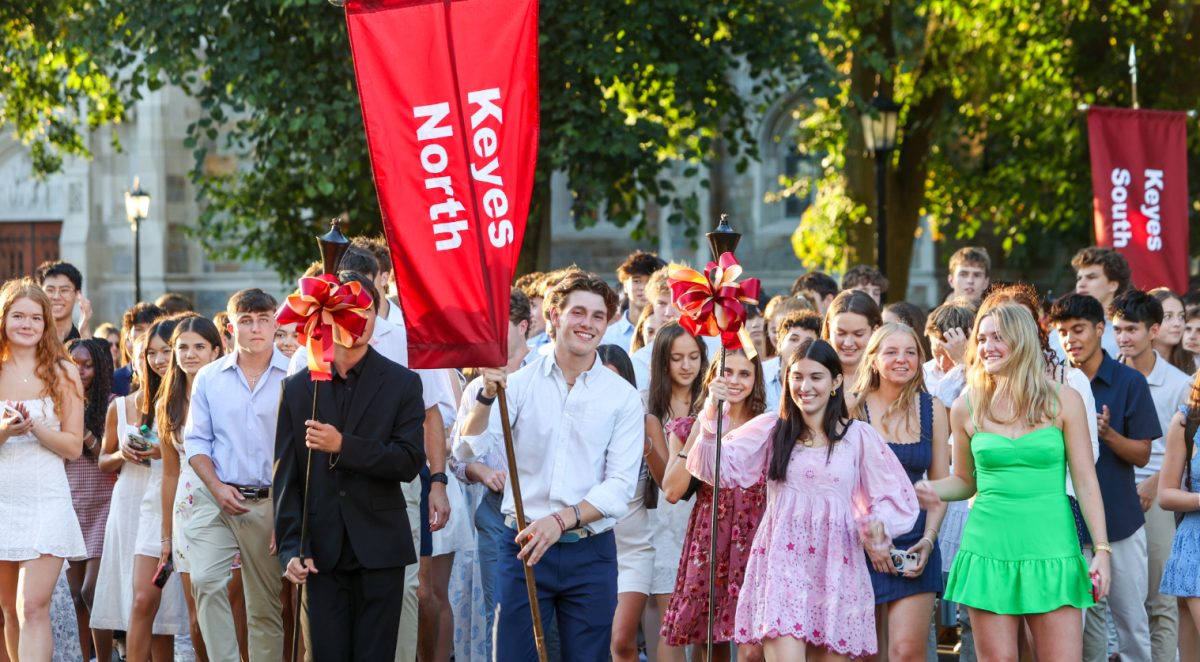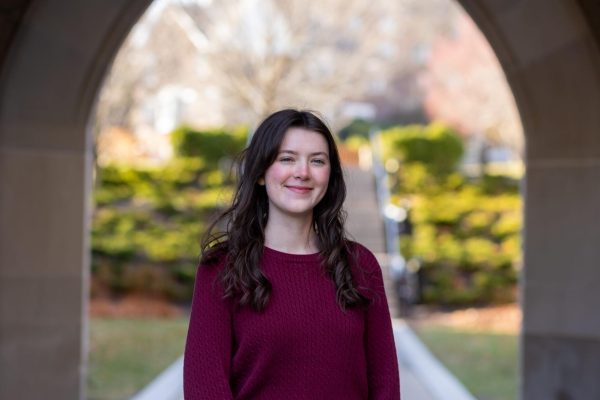A sea of freshmen in summery dresses and pressed khakis filed down Linden Lane Thursday evening, chatting with each other as they made their way to Conte Forum for the 2025 convocation.
Once seated, the newest members of the Boston College community were greeted by Rev. Gregory Boyle, S.J., who delivered this year’s convocation address. Boyle called on the Class of 2029 to embrace compassion and kinship—themes from his latest book, and the common text for the Class of 2029, Cherished Belonging: The Healing Power of Love in Divided Times.
Boyle, a Jesuit priest, BC alum, bestselling author, and founder of Homeboy Industries—the largest gang rehabilitation, intervention, and reentry program in the world—shared stories from his four decades of working with gang members and formerly incarcerated individuals in Los Angeles, challenging BC students to reframe their understanding of service.
“You’re meant to prepare yourself to dismantle the barriers that exclude you, are meant to create a community of kinship, such that God, in fact, might recognize to go from here and to stand at the margins,” Boyle said. “The only way they’ll ever get erased is if you stand out at them, and that’s how you set the world on fire, is by altering the way we see the folks who are poor and powerless and voiceless.”

While serving as a pastor from 1986 to 1992 at Dolores Mission Church in Boyle Heights, Los Angeles, Boyle began working with youth affected by gang violence and systemic poverty. According to Boyle, the parish had the highest concentration of gang activity in the city at the time.
“I buried my first young person killed because of the sadness in 1988,” Boyle said. “Three months ago, I buried my 263rd.”
The experience led Boyle to create Homeboy Industries, which employs and trains former gang members in a variety of fields and provides resources like substance abuse services, domestic abuse support, and educational classes to thousands of people.
“Ten thousand folks in here walk through our doors—gang members, people right out of prison, people who are tired of being tired,” Boyle said. “Every single one comes barricaded behind a wall of shame and disgrace, and the only thing that can scale that wall is tenderness.”

Throughout his address, Boyle recounted stories from his experience working with former gang members. He told one about Mario, a former gang member, who shared his story with a large audience during a group trip to Gonzaga University.
When asked what advice he would give his children, Mario said he hoped they would not turn out like him. Despite his self-doubt, Mario was met with affirmation from the audience, according to Boyle.
“The woman who asks the question stands, and now it’s her turn to cry,” Boyle said. “‘Why wouldn’t you want your kids to turn out to be like you? You are loving, you are kind, you are gentle, you are wise—I hope your kids turn out to be like you.’”
Boyle said the moments that followed were marked by collective empathy.
“One thousand total perfect strangers stand, and they will not stop clapping, and all Mario can do is put his hand over his face, so overwhelmed with emotion at this room full of strangers who had returned him to himself,” Boyle said.
Boyle encouraged the audience to respond to those who are suffering with empathy, rather than distancing themselves from them.
“The measure of your compassion lies not in your service to those on the margins, but only in your willingness to see yourselves in kinship with them,” Boyle said.

Boyle also discussed the rhetoric he said is often used to dehumanize people who were involved in gangs or caught in cycles of poverty and incarceration.
“We’re at a time right now where we say, ‘Well, we’re only going to deport the worst of the worst, or blood thirsty murderers,’” Boyle said. “I’ve never met a bloodthirsty murderer. You might think I might have. And I’ve never met the worst of the worst. I’ve met wounded, broken, tortured, traumatized, mentally ill, despondent human beings. But I’ve never met an evil one.”
Boyle reminded the Class of 2029 that the goal of an education at BC transcends the classroom, emphasizing a lifelong commitment to building a more compassionate world.
“The hope is that you will go from here eventually and prepare yourself to stand with the demonized, so that the demonizing will stop, and with the disposal, so that the day will come when we stop throwing people away,” Boyle said. “You will go from here and imagine a community of cherished belonging where nobody is left behind.”














